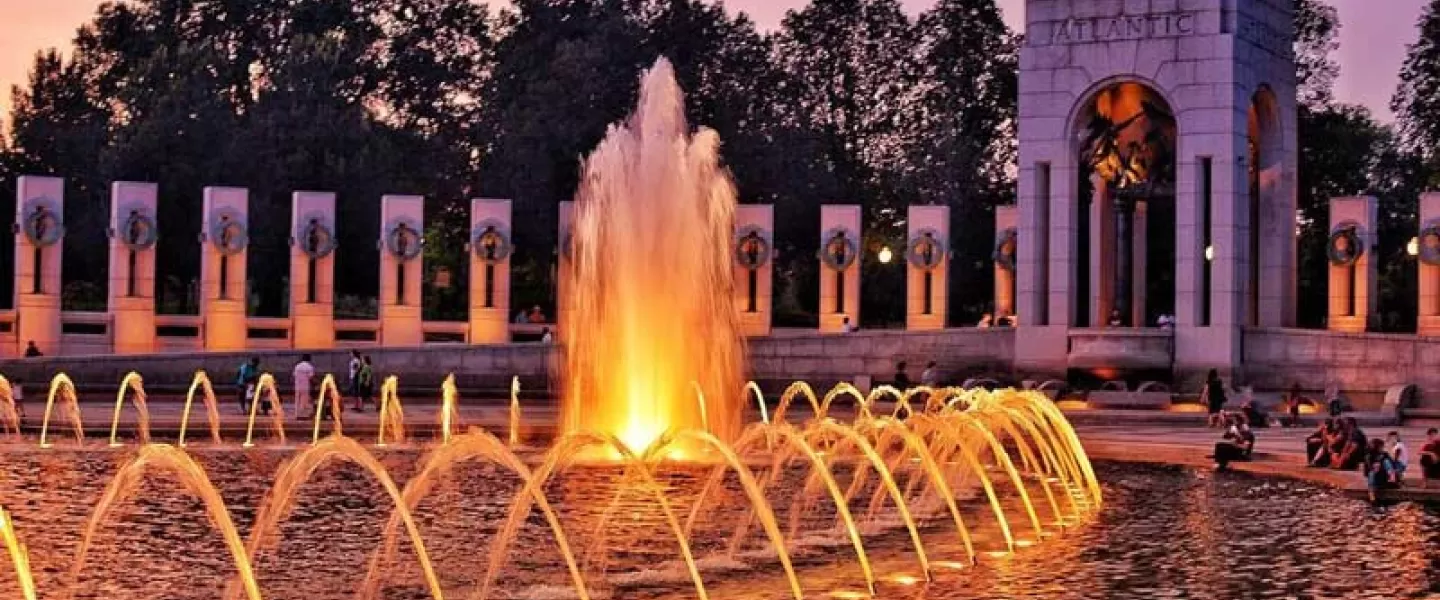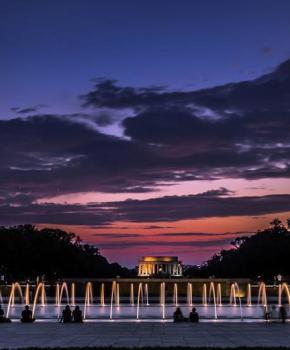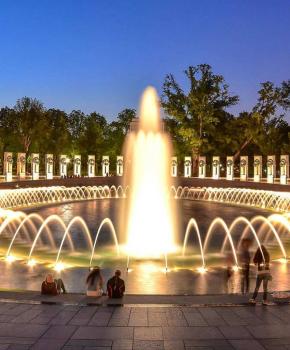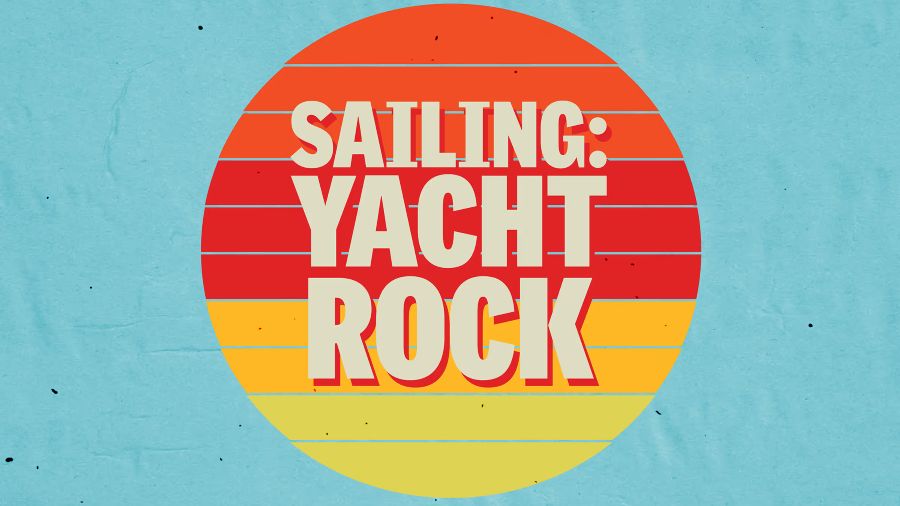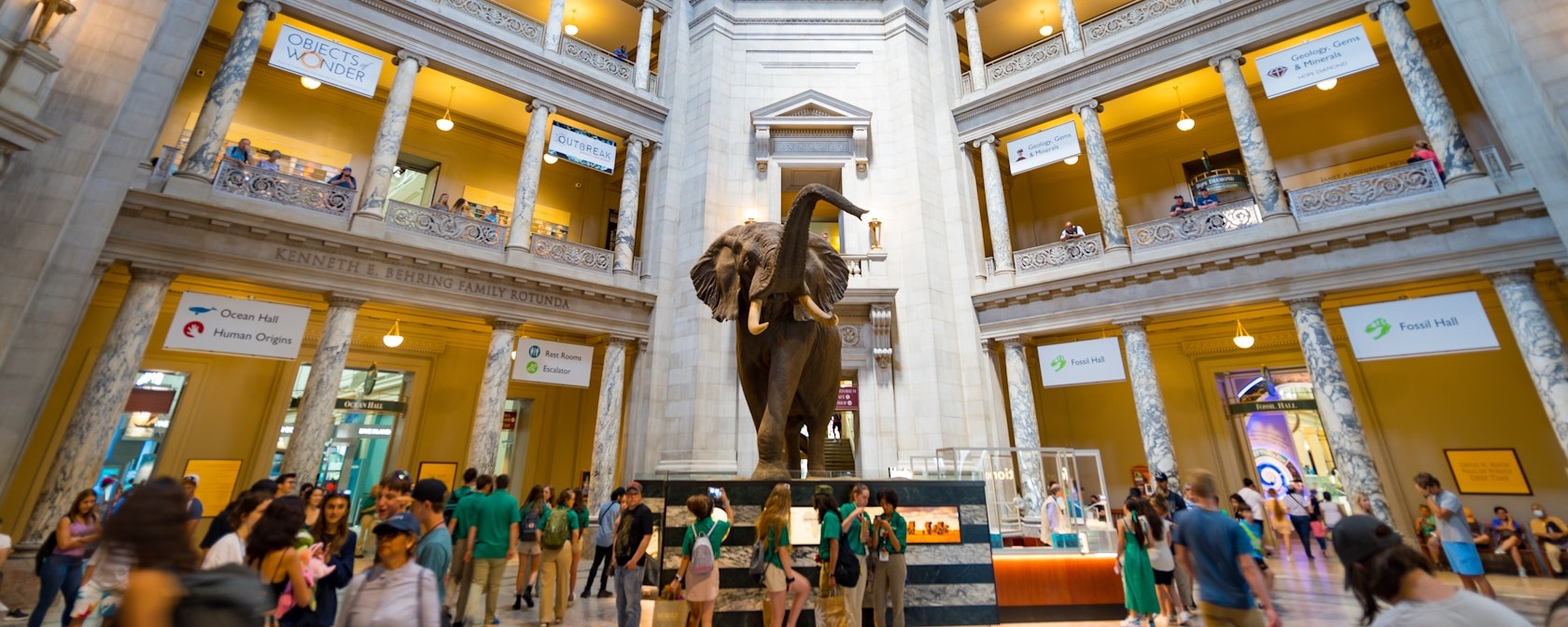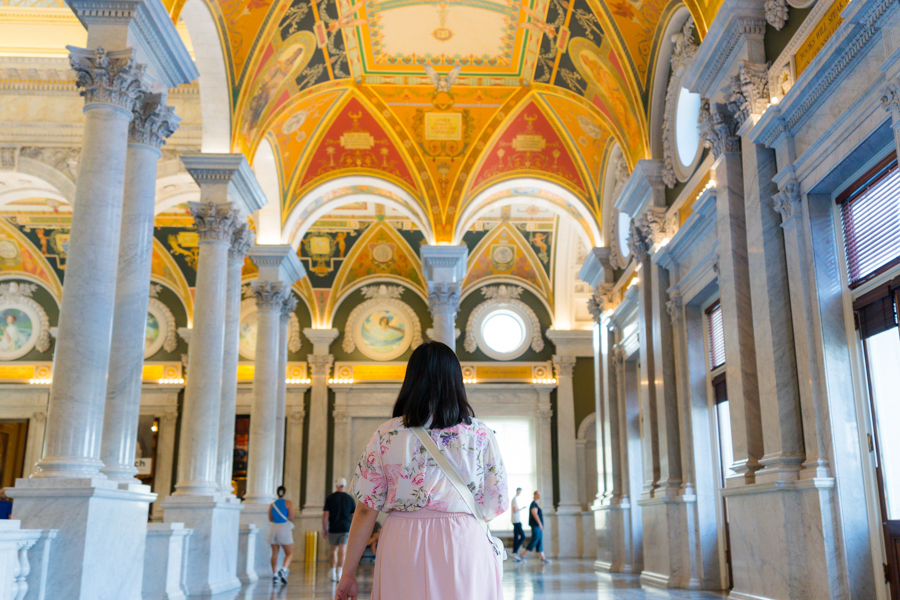Everything you need to know for planning a visit to this majestic memorial on the National Mall that honors American sacrifice during World War II.
What is the National World War II Memorial and where is it?
The National World War II Memorial honors the 16 million people who served as part of the U.S. Armed Forces during World War II, including more than 400,000 who gave the ultimate sacrifice for their country. The memorial sits along the central vista of the National Mall, at the east end of the Lincoln Memorial Reflecting Pool. The World War II Memorial is free and open to the public 24 hours a day. Park rangers are on duty to answer questions from 9:30 a.m. to 10 p.m. daily, and interpretive programs are provided throughout the day and upon request.
The most convenient way to reach the memorial, often referred to as the WWII Memorial, is by Metrobus or Metro. There are two Metro stations close by: Smithsonian and Federal Triangle, both located on the Orange, Blue and Silver lines. As for the bus,take either the 32, 34 or 36 Metrobus routes.
What will I see at the National World War II Memorial?
Symbols of America’s triumph in the Second World War are artfully displayed all over the World War II Memorial, which has a splendid fountain at its center. 56 granite columns symbolize unity among the 48 states, seven federal territories and the District of Columbia. The columns form a semi-circle around the memorial’s plaza, with two 43-foot tall arches on opposite sides. The northern arch represents victory in the Atlantic, while the southern arch symbolizes victory in the Pacific.
When you enter the memorial’s semi-circle from the east, look for two walls on each side of you. Each contains scenes from the war beautifully rendered in bronze relief. On the left (towards the Pacific arch), the scenes progress through the experience of war, from physical exams all the way to homecoming. The right side pays tribute to the Atlantic, as the last scene depicts American and Russian armies shaking hands as the two sides met in Germany at the conclusion of the war.
One of the World War II Memorial’s most striking features is the Freedom Wall. 4,048 gold stars pay tribute to American lives lost at war (each star represents 100 Americans), while dozens of battle names and military campaign destinations are also on display. In front of the wall, a stone fittingly reads, “Here we mark the price of freedom.”
Be sure to look for the memorial’s two tough-to-find inscriptions of “Kilroy was here,” another powerful American symbol from World War II. The saying represents the presence of U.S. soldiers, and was scribbled (with an accompanying doodle) at numerous locations during the war.
Honor a veteran
On any given visit, you may encounter former servicemen at the memorial. In fact, the Honor Flight Network is a non-profit dedicated to bringing vets, often elderly, to DC to visit the memorials which honor their service to the nation. These visits are often filled with emotions and help provide closure for veterans by reinforcing the importance of their service and sacrifice.

